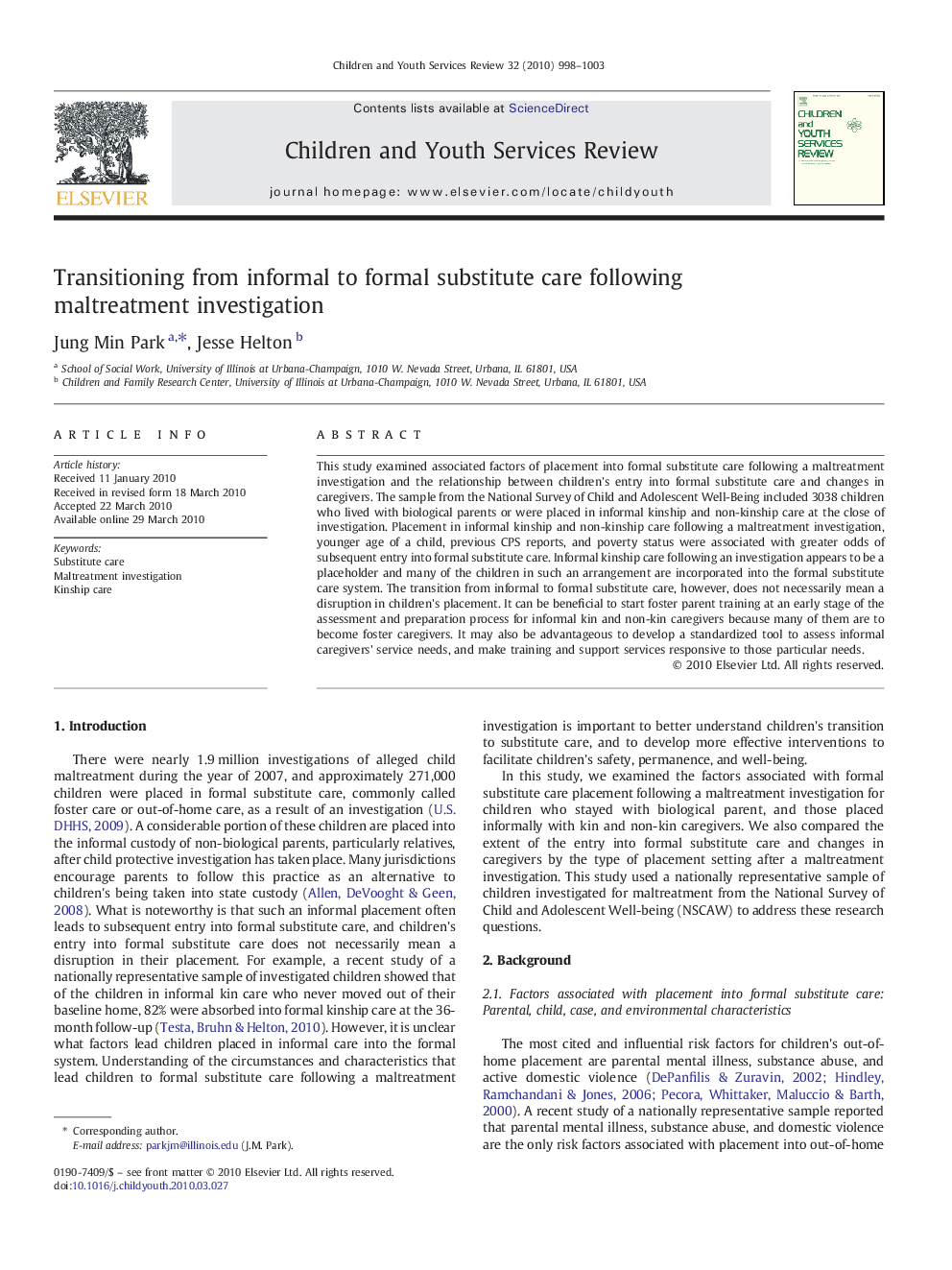| Article ID | Journal | Published Year | Pages | File Type |
|---|---|---|---|---|
| 347499 | Children and Youth Services Review | 2010 | 6 Pages |
This study examined associated factors of placement into formal substitute care following a maltreatment investigation and the relationship between children's entry into formal substitute care and changes in caregivers. The sample from the National Survey of Child and Adolescent Well-Being included 3038 children who lived with biological parents or were placed in informal kinship and non-kinship care at the close of investigation. Placement in informal kinship and non-kinship care following a maltreatment investigation, younger age of a child, previous CPS reports, and poverty status were associated with greater odds of subsequent entry into formal substitute care. Informal kinship care following an investigation appears to be a placeholder and many of the children in such an arrangement are incorporated into the formal substitute care system. The transition from informal to formal substitute care, however, does not necessarily mean a disruption in children's placement. It can be beneficial to start foster parent training at an early stage of the assessment and preparation process for informal kin and non-kin caregivers because many of them are to become foster caregivers. It may also be advantageous to develop a standardized tool to assess informal caregivers' service needs, and make training and support services responsive to those particular needs.
